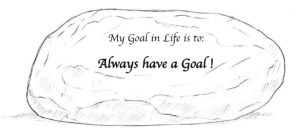Building a relationship with your supervisor
In 1988 I entered medical school. During my first week I realised that I was assigned to a programme in which the students were supposed to do part-time lab research from their first year in medical school. When it came to choosing a research area, most students chose clinical subjects. Having enjoyed chemistry in high school, I instead chose Biochemistry. I can still remember the other students saying ‘Are you crazy? Biochemistry is really boring and complicated!’
My first ever supervisor in the Biochemistry department was Mathias, who had just completed his PhD. I must say that I was extremely lucky to get assigned to his lab. It was through him that I realised Biochemistry is actually reallyfun. Not so much the metabolic pathways, but planning experiments, doing experiments and getting data. In contrast to most other research areas, in Biochemistry you can literally think of an experiment today, do it the next day and also get the data, which makes it really exciting. Mathias and I often did experiments together, which I still remember to this day, because we were joking constantly.

Mathias not only got me really interested in biochemical research. he also sent me off on a path to succeed in doing research. About a year after I joined his lab he went for an overseas conference. When he came back he remarked casually “I talked to this Professor from Tufts University in Boston, and asked her if you could visit her lab for three months, and she agreed to it.” Needless to say, I was super-thrilled, and the three months eventually turned into eight. My first stay in Boston was probably the most transformative and fun experience in my life. And after that, my life was no longer the same.
What this goes to show is that forming a good relationship with professors (or any professionals for that matter), but especially with your research supervisor, is important. For one thing, as illustrated by my example, your supervisor can help you a long way towards the career goal you want to achieve. Your supervisor also likely has connections, and if you are able to benefit from those, it could be immensely helpful.
Furthermore, many research attachments are graded. The final grade is usually made up of three components, (1) a presentation, (2) a written report and (3) the assessment by your supervisor. Hence, the impression your supervisor has of you is really very important.
The building of a strong relationship doesn’t happen on its own. It usually requires that you need to take the initiative. There are a lot of obvious things you should do, and I below I mention some of those briefly. After that I will discuss two issues that I believe students rarely think about.
The most important thing is probably to show interest. Show that you care and think about your project. You can best show this by talking to your supervisor regularly about anything related or unrelated to your project. This is also one of the best ways to learn and get new ideas. Take the initiative and ask questions. I can tell from experience that working with students who never ask anything is really not fun! And I normally conclude they must not be very interested.
One other obvious thing to do is putting in effort. You cannot control your results, but you can control your effort. On the other hand, getting good results as a result of working smart can be very impressive, too, and can markedly reduce the amount of effort.
It is also very important to be appreciative. Showing appreciation is always the best motivation for someone to help you. (And the opposite is also true.)
In addition to those things, one thing that students often don’t consider enough are your goals. Most supervisors ask their students what they want to do in the future. Imagine the student responds that in the future he wants to do Nobel prize winning research (I in fact know one student who indeed expressed this). Of course, my natural reaction is that I want to help this person and I want to be part of his journey. And helping this person is totally worth my time because I might be helping a future successful researcher.
Now let’s imagine there is another student, who isn’t sure what he or she wants to do, and plans to first work as a research technician for a while before making up his mind. If the student is enthusiastic, I will still do my best to help with the project. But the main problem is that I don’t really know how else to help the student. I will usually try to do my best to get the student excited about his or her research, but that is all I can do.
And think about another point. Which of the two students will more likely end up in the lab of their choice. Obviously, most people would rather work with potential future nobel laureates than with seemingly less ambitious students.
So expressing your goals is important. Of course, no goal is carved in stone and goals can change. But achieving things without setting big goals is difficult.

I remember one particular time where one of the Life Science students stopped me outside our department and said Prof Thilo, can I talk to you for a short while about my research project. He told me about it, and naturally, afterwards I spent some time to think about it and try to give him some advice. But what is more, he subsequently did an independent study module with me and we build a personal relationship, and I eventually wrote him a strong reference letter for his medical school application.
I recently supervised another student, who was really dedicated, hard-working and interested. And it was actually very enjoyable to work with the student. So when being asked by the student if I could provide a reference letter, I did not hesitate to agree to write one. But when I finally sat down to write the letter, all I could think of was that the student is dedicated, hard-working and interested, which of course is what most letters say and which will not really help in any way.
A letter is only going to help you if it highlights unique things about you, and provides concrete examples to back up these points. Which brings me to the second important point about relationships with supervisors. It is important that you show your uniqueness in some way and provide the examples. For instance, some students really impressed me because they handled insane numbers of commitments or responsibilities while still juggling their project successfully, or because they never gave up until they solved a problem, or because they talked to everyone about their research. There are many things you can do that set yourself apart. And these are also the things that you could talk about in your job interviews and write about in your cover letters and personal statements. That is so much more convincing than saying you are very dedicated, hard-working and interested.